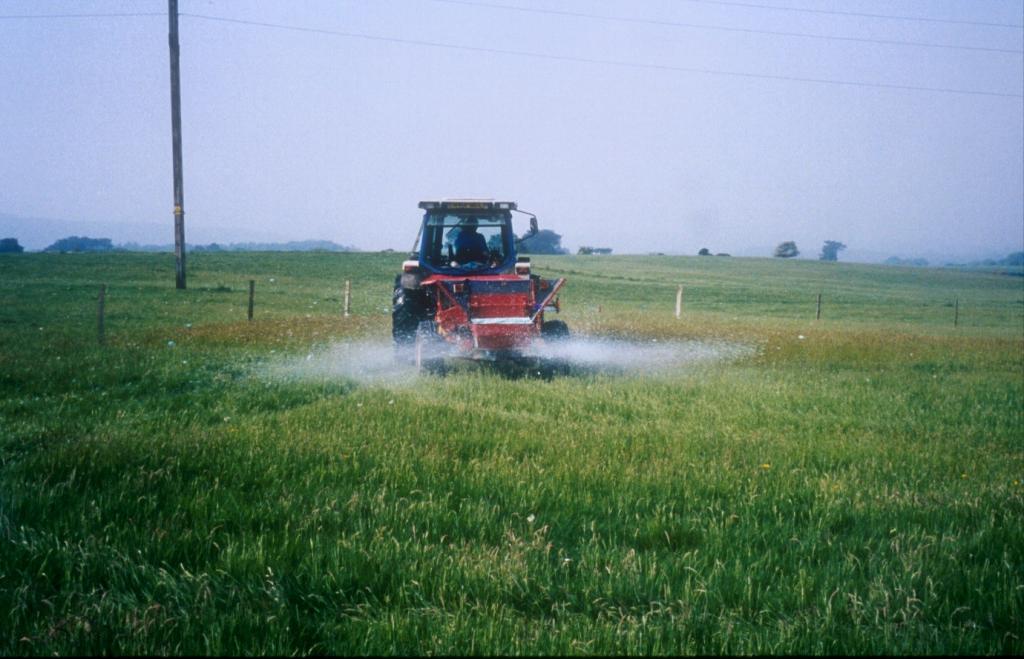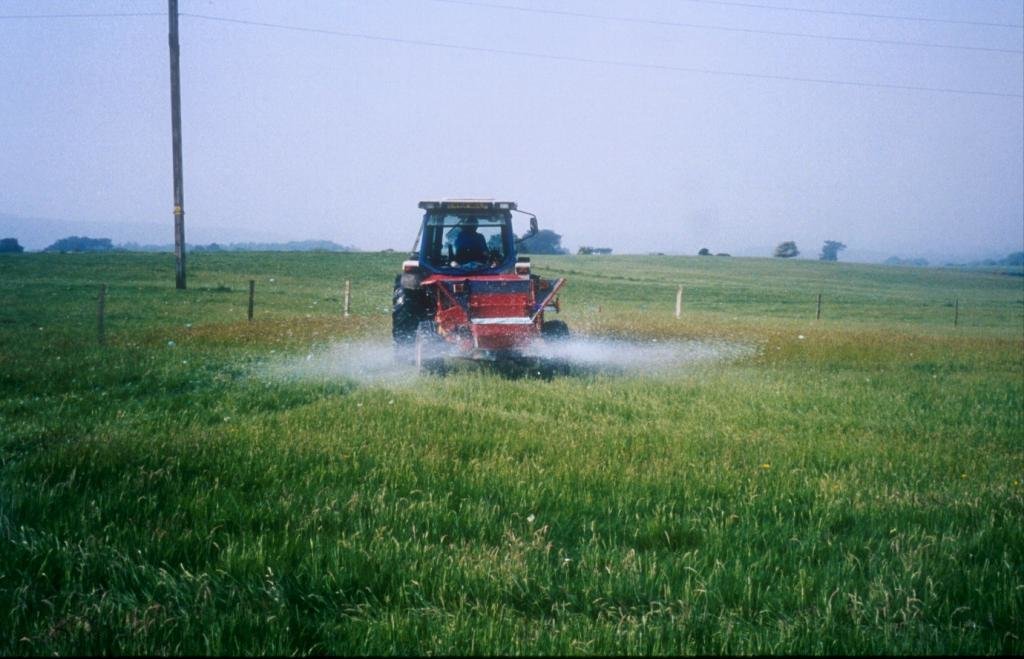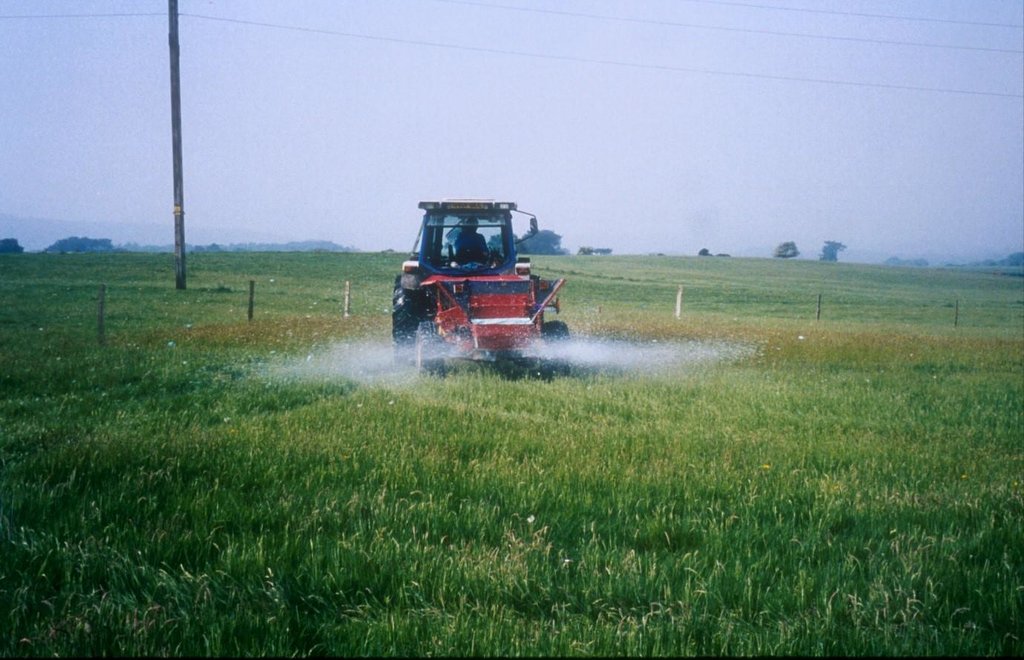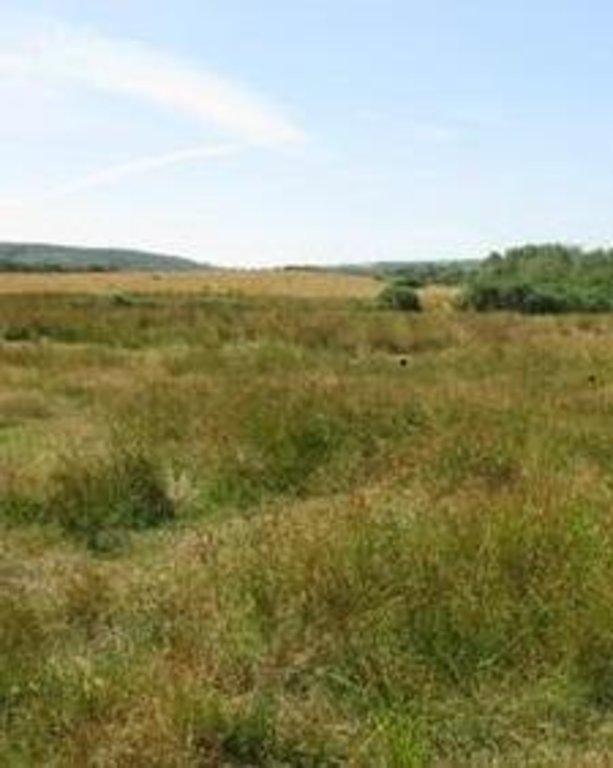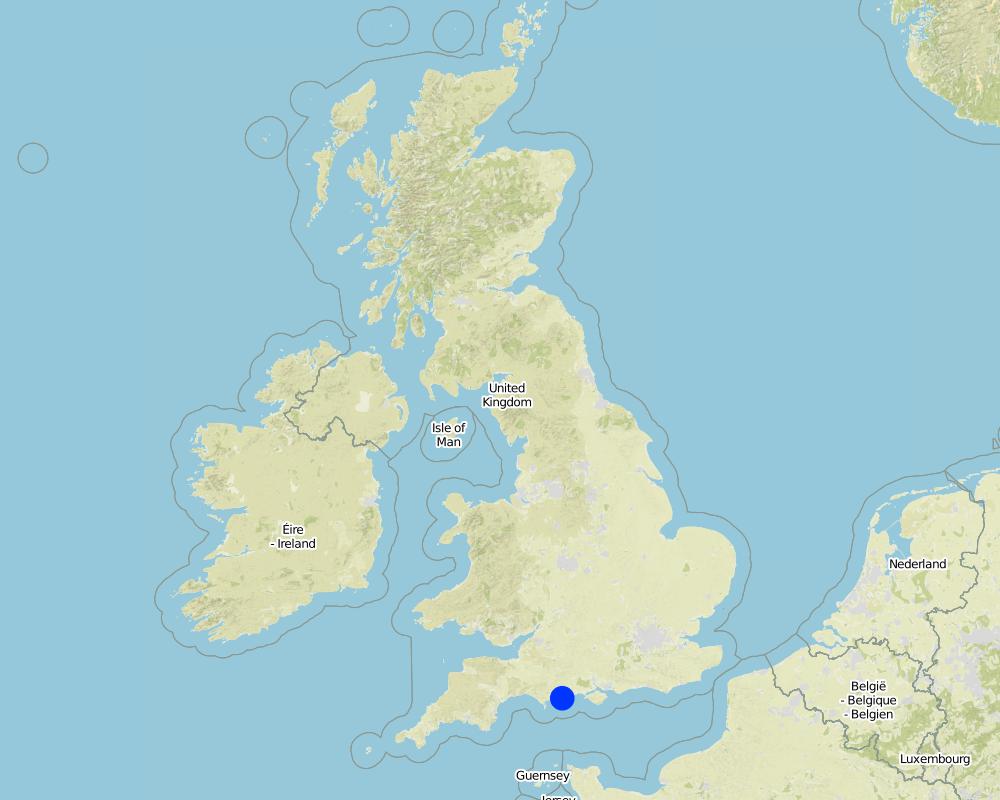Soil pH management [Reino Unido]
- Creación:
- Actualización:
- Compilador: Tandra Fraser
- Editor: –
- Revisor: Fabian Ottiger
approaches_2615 - Reino Unido
Visualizar secciones
Expandir todo Colapsar todos1. Información general
1.2 Detalles de contacto de las personas de referencia e instituciones involucradas en la evaluación y la documentación del Enfoque
Especialista MST:
Tibbett Mark
m.tibbett@reading.ac.uk
University of Reading
Reading RG6 6UA
Reino Unido
Nombre de la(s) institución(es) que facilitaron la documentación/ evaluación del Enfoque si fuera relevante)
University of Reading (University of Reading) - Reino Unido1.3 Condiciones referidas al uso de datos documentados mediante WOCAT
¿Cuándo se compilaron los datos (en el campo)?
03/05/2016
El compilador y la/s persona(s) de referencia claves aceptan las condiciones acerca del uso de los datos documentados mediante WOCAT :
Sí
1.4 Referencia/s al/los Cuestionario(s) de Tecnologías MST
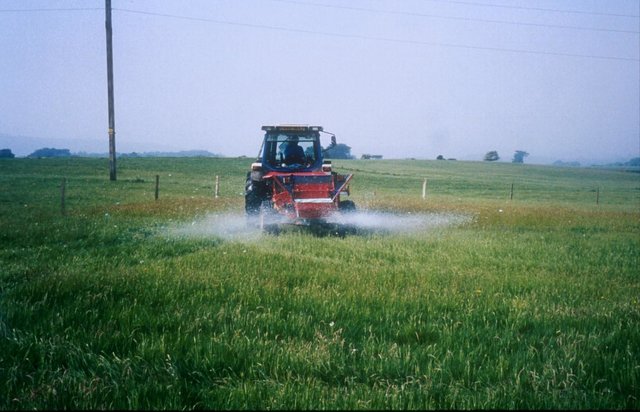
Soil pH management [Reino Unido]
Acidification treatments were applied to improved pastures in an attempt to restore plots to a semi-natural state
- Compilador: Tandra Fraser
2. Descripción del Enfoque MST
2.1 Breve descripción del Enfoque
Acidification treatments were applied to improved pastures in an attempt to restore plots to low-intensity grazing land
2.2 Descripción detallada del Enfoque MST
Descripción detallada del Enfoque MST:
Aims / objectives: To convert the area from intensive pastureland to a semi-natural state with low intensity grazing through alteration of the soil pH. This change in land-use should have a positive effect on both above- and belowground biodiversity.
Methods: Plots were established on two adjacent farms owned by National Trust near Wareham, Dorset (Newlines Farm and Hartland Farm). A control and two sulphur amendments were compared on plots on ten fields (five from each farm) on 50 m x 50 m plots. Elemental sulphur (Brimestone 90TM) or ferrous sulphate (Mistrale “Wet Copperas” 50TM) were applied at equal rates of 2000 kg ha-1 in May 2000 and a second application of 1600 kg ha-1 in March 2001.
Stages of implementation: Treatments were applied in 2000 and 2001. Periodic monitoring has been conducted to monitor changes in plant diversity and soil chemical and biological properties.
Role of stakeholders: Stakesholders played an active role in identifying management options and implementing the technology. When the original plots were established, a charitable organisation was the primary stakeholder. For the intent of the current project, other stakeholders became involved, including parish council, landowners, and conservation organisations.
Other important information: Acidification treatments were applied to plots on the Isle of Purbeck that had previously been used for arable production and then high intensity grazing. The site is located on acidic fluvially-deposited soil and was in lowland heath until the middle of the 20th century at which time the land was tilled and treatments of rock phosphate, marl and chalk were added to increase soil pH and nutrient availability and improve the potential of the land for agricultural production.
2.3 Fotos del Enfoque
2.5 País/ región/ lugares donde el Enfoque fue aplicado
País:
Reino Unido
Región/ Estado/ Provincia:
Dorset
Especifique más el lugar :
Wareham
Map
×2.6 Fechas de inicio y conclusión del Enfoque
Indique año del inicio:
1999
2.7 Tipo de Enfoque
- proyecto/ basado en un programa
2.8 Propósitos/ objetivos principales del Enfoque
The Approach focused mainly on other activities than SLM (soil, pH, below-ground biodiversity, low-intensity grazing)
To manage soil pH change and associated effects on above and below-ground diversity and function
The SLM Approach addressed the following problems: Management of soil pH and land use change to less intensive system
2.9 Condiciones que facilitan o impiden la implementación de la/s Tecnología/s aplicadas bajo el Enfoque
normas y valores sociales/ culturales/ religiosos
- impiden
Local confusion about land use change
Treatment through the SLM Approach: Public workshop explained reasons to stakeholders
disponibilidad/ acceso a recursos y servicios financieros
- impiden
Loss of earning as less intensive system is less productive
Treatment through the SLM Approach: Ecological benefits balance against economic losses
marco de trabajo legal (tenencia de tierra, derechos de uso de tierra y agua)
- facilitan
The existing land ownership, land use rights / water rights greatly helped the approach implementation: The land where the approach was implement was managed by National Trust UK who had a special interest in reclamation and conservation.
3. Participación y roles de las partes interesadas involucradas
3.1 Partes interesadas involucradas en el Enfoque y sus roles
- usuarios locales de tierras/ comunidades locales
- especialistas MST/consejeros agrícolas
- ONG
- organización internacional
3.2 Involucramiento de los usuarios locales de tierras/ comunidades locales en las distintas fases del Enfoque
| Involucramiento de los usuarios locales de tierras/ comunidades locales | Especifique quién se involucró y describa las actividades | |
|---|---|---|
| iniciación/ motivación | apoyo externo | Land owners who acquired national support |
| planificación | apoyo externo | By specialist |
| implementación | interactivo | By land owner and specialist |
| monitoreo y evaluación | apoyo externo | By Specialist |
| Research | apoyo externo | By specialist |
3.4 La toma de decisiones en la selección de Tecnología(s) MST
Especifique quién decidió la selección de las Tecnología/ Tecnologías a implementarse:
- principalmente por especialistas MST en consulta con usuarios de tierras
Explique:
Decisions on the method of implementing the SLM Technology were made by mainly by land users supported by SLM specialists
4. Apoyo técnico, fortalecimiento institucional y gestión del conocimiento
4.1 Construcción de capacidades / capacitación
¿Se proporcionó la capacitación a usuarios de tierras/ otras partes interesadas?
Sí
Especifique quién fue capacitado:
- usuarios de tierras
- personal de campo/ consejeros
Forma de capacitación:
- de agricultor a agricultor
- reuniones públicas
4.2 Servicio de asesoría
¿Los usuarios de tierras tienen acceso a un servicio de asesoría?
Sí
Especifique si servicio proporcionado se realizó:
- en los campos de los usuarios de tierras
- Public meetings
Describa/ comentarios:
Advisory service was not foreseen for this approach
Advisory service is totally inadequate to ensure the continuation of land conservation activities; No additional government funding has been acquired.
4.3 Fortalecimiento institucional (desarrollo institucional)
¿Se establecieron o fortalecieron instituciones mediante el Enfoque?
- no
4.4 Monitoreo y evaluación
¿El monitoreo y la evaluación forman parte del Enfoque?
Sí
Comentarios:
bio-physical aspects were regular monitored by project staff through observations
bio-physical aspects were regular monitored by project staff through measurements
technical aspects were regular monitored by project staff through observations
technical aspects were regular monitored by project staff through measurements
area treated aspects were regular monitored through observations
area treated aspects were regular monitored through measurements
There were no changes in the Approach as a result of monitoring and evaluation
There were no changes in the Technology as a result of monitoring and evaluation
4.5 Investigación
¿La investigación formó parte del Enfoque?
Sí
Especifique los temas:
- ecología
- tecnología
Proporcione detalles adicionales e indique quién hizo la investigación:
Research on the approach has been carried out by specialists at Bournemouth University and the University of Reading, UK.
Research was carried out on-farm
5. Financiamiento y apoyo material externo
5.1 Presupuesto anual para el componente MST del Enfoque
Si no se conoce el presupuesto anual preciso, indique el rango:
- 10,000-100,000
Comentarios (ej. fuentes principales de financiamiento/ donantes principales):
Approach costs were met by the following donors: government (Department of Environment, Food & Rural Affairs): 50.0%; national non-government (National Trust): 30.0%; other (University): 20.0%
5.2 Apoyo financiero/material proporcionado a los usuarios de tierras
¿Los usuarios de tierras recibieron financiamiento/ apoyo material para implementar la Tecnología/ Tecnologías? :
Sí
5.3 Subsidios para insumos específicos (incluyendo mano de obra)
- agrícola
| Especifique qué insumos se subsidiaron | En qué grado | Especifique los subsidios |
|---|---|---|
| Elemental S, Ferrous Sulphate | totalmente financiado | |
Si la mano de obra de usuarios de tierras fue un insumo sustancial, ¿fue:
- voluntario?
5.4 Crédito
¿Se proporcionó crédito bajo el Enfoque para actividades MST?
No
6. Análisis de impacto y comentarios de conclusión
6.1 Impactos del Enfoque
¿El Enfoque ayudó a los usuarios de tierras a implementar y mantener Tecnologías MST?
- No
- Sí, un poco
- Sí, moderadamente
- Sí, mucho
Conversion to low input system
¿El Enfoque empoderó a grupos en desventaja social y económica?
- No
- Sí, un poco
- Sí, moderadamente
- Sí, mucho
Did other land users / projects adopt the Approach?
- No
- Sí, un poco
- Sí, moderadamente
- Sí, mucho
Other farms
Did the Approach lead to improved livelihoods / human well-being?
- No
- Sí, un poco
- Sí, moderadamente
- Sí, mucho
Enjoyment of traditional landscape
Did the Approach help to alleviate poverty?
- No
- Sí, un poco
- Sí, moderadamente
- Sí, mucho
6.2 Motivación principal del usuario de la tierra para implementar MST
- carga de trabajo reducida
- pagos/ subsidios
- conciencia medioambiental
- mejoramiento estético
6.3 Sostenibilidad de las actividades del Enfoque
¿Pueden los usuarios de tierras sostener lo que se implementó mediante el Enfoque (sin apoyo externo)?
- sí
6.4 Fortalezas/ ventajas del Enfoque
| Fuerzas/ ventajas/ oportunidades desde la perspectiva del usuario de la tierra |
|---|
| Decreased spending on inputs where the only input in the system in dung from cattle grazing (How to sustain/ enhance this strength: Continue grazing at a low enough density to allow adequate plant regrow) |
| Decreased labour required for management |
| Decreased compaction since regular use of tractors on site is no longer required (How to sustain/ enhance this strength: Attempt to minimizing compaction by grazing livestock) |
| Fuerzas/ ventajas/ oportunidades desde la perspectiva del compilador o de otra persona de referencia clave |
|---|
| The conversion in land use from a improved agriculture to a semi- natural low input grazing system should have a positive effect on above- and belowground biodiversity. |
| Considering that the Isle of Purbeck was historically a region of cultural importance, returning the system to a more natural state has important implications for the cultural and recreational value of the land. |
| Low input systems can increase resilience of the system to global change |
6.5 Debilidades/ desventajas del Enfoque y formas de sobreponerse a ellos
| Debilidades/ desventajas/ riesgos desde la perspectiva del usuario de la tierra | ¿Cómo sobreponerse a ellas? |
|---|---|
| Fertilizer application rate too high for one application | Smaller, regular additions over several years |
| Decrease in economic returns | |
| Shrub encroachment (i.e. gorse; Alex europaeus) can be a problem when converting to low input pasture land in this region. | Grazing, mowing, and chemical herbicides are some options for slowing invasions. |
| Debilidades/ desventajas/ riesgos desde la perspectiva del compilador o de otra persona de referencia clave | ¿Cómo sobreponerse a ellas? |
|---|---|
| Over time nutrients are being drawn down but exporting meat off the land with no inputs | Periodic applications of nutrients may be required to ensure long-term fertility of the system |
| Land use change and restoration are slow process and may result in economic losses on managed lands |
7. Referencias y vínculos
7.1 Métodos/ fuentes de información
- visitas de campo, encuestas de campo
- entrevistas con usuarios de tierras
7.2 Referencias a publicaciones disponibles
Título, autor, año, ISBN:
Re-creation of heathland on improved pasture using top soil removal and sulphur amendments: Edaphic drivers and impacts of ericoid mycorrhizas, Diaz, A., Green, I., Tibbett, M., 2008Heathland restoration on former agricultural land: Effects of artificial acidification on the availability and uptake of toxic metal cation, Green, I., Stockdale, J., Tibbett, M., Diaz, I., 2007Are sulphurous amendments an effective tool in the restoration of heathland and acidic grassland after four decades of rock phosphate fertlization, Tibbett, M., Diaz, A., 2005The restoration of heathland and acid grassland at Hartland and Newline Farms, Tibbett, M., Diaz, A., 2001
¿Dónde se halla disponible? ¿Costo?
Biological Conservation, 141:1628-1635, http://www.sciencedirect.com/science/article/pii/S0006320708001353Water Air Soil Pollution, 178:287-295, http://link.springer.com/article/10.1007/s11270-006-9197-8Restoration Ecology, 13:83-91, http://onlinelibrary.wiley.com/doi/10.1111/j.1526-100X.2005.00010.x/epdfFirst Year Report to National Trust, Purbeck
Título, autor, año, ISBN:
Heathland restoration on former agricultural land: Effects of artificial acidification on the availability and uptake of toxic metal cation, Green, I., Stockdale, J., Tibbett, M., Diaz, I., 2007
¿Dónde se halla disponible? ¿Costo?
Water Air Soil Pollution, 178:287-295, http://link.springer.com/article/10.1007/s11270-006-9197-8
Título, autor, año, ISBN:
Are sulphurous amendments an effective tool in the restoration of heathland and acidic grassland after four decades of rock phosphate fertlization, Tibbett, M., Diaz, A., 2005
¿Dónde se halla disponible? ¿Costo?
Restoration Ecology, 13:83-91, http://onlinelibrary.wiley.com/doi/10.1111/j.1526-100X.2005.00010.x/epdf
Título, autor, año, ISBN:
The restoration of heathland and acid grassland at Hartland and Newline Farms, Tibbett, M., Diaz, A., 2001
¿Dónde se halla disponible? ¿Costo?
First Year Report to National Trust, Purbeck
Vínculos y módulos
Expandir todo Colapsar todosVínculos

Soil pH management [Reino Unido]
Acidification treatments were applied to improved pastures in an attempt to restore plots to a semi-natural state
- Compilador: Tandra Fraser
Módulos
No se hallaron módulos


